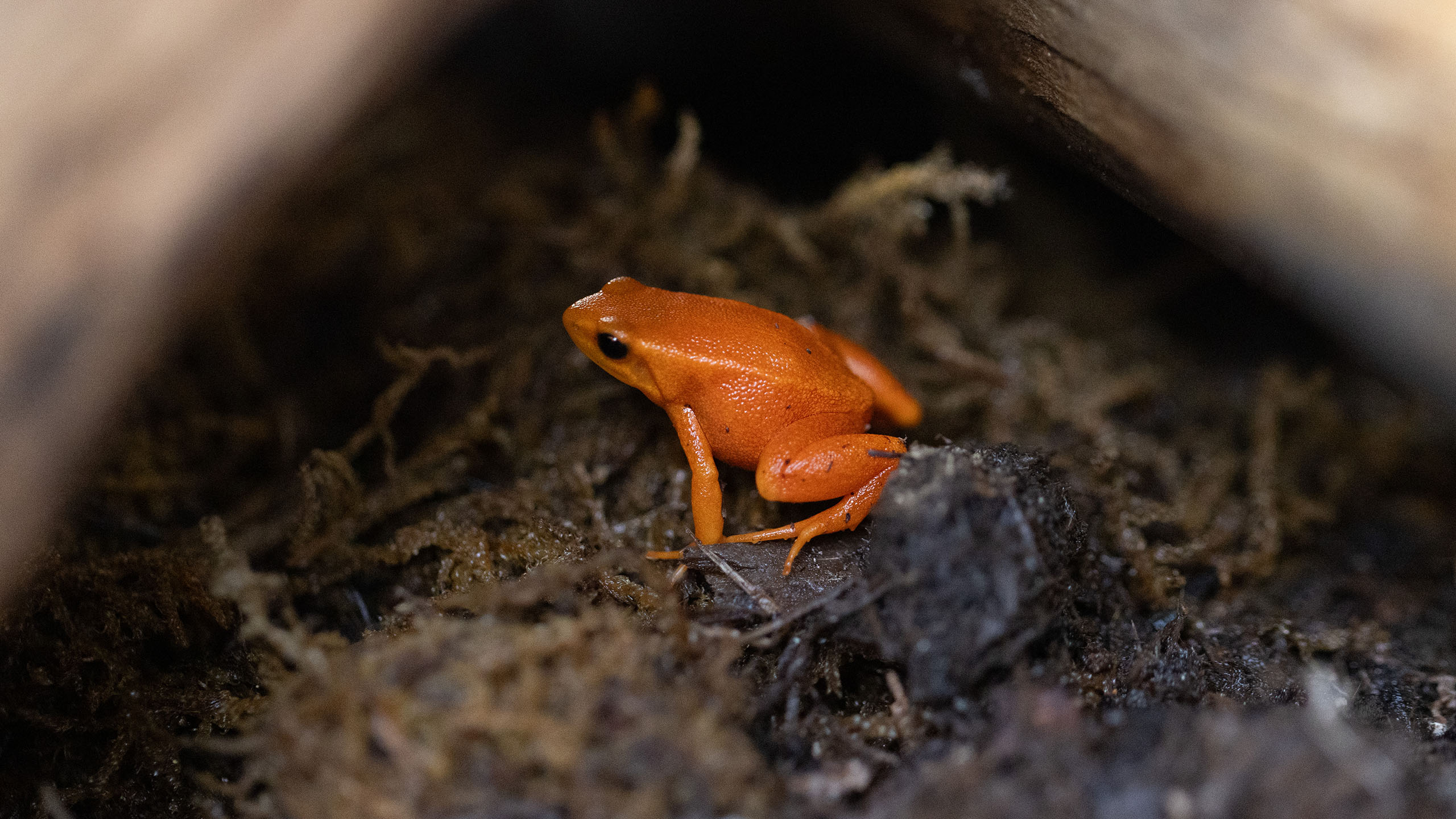
Golden mantella
Mantella aurantiaca
The golden mantella’s bright colouring describes how poisonous it is. Despite this, one snake and one lizard species are immune to its poison and hunt the golden mantella. Females spawn on dry land close to a body of water before the rains begin and the rain flushes the tadpoles into the pond.
Conservation
The species is threatened by the destruction of habitats and being captured as pets.
Korkeasaari Zoo has supported the conservation of golden mantellas by, for example, funding habitat mapping and restoration in the Torotorofotsy area. Land that is unsuitable for mantellas, such as illegal mining areas, can be restored by planting native plants that the mantellas can use for reproduction.
Restoration measures are carried out by a non-governmental organization Mitsinjo, which also runs the Toby Sahona centre. Established in 2012, the centre specialises in studying the species to gather conservation data and breeding it in terrariums for reintroduction into the wild. The centre also does research on other species of frogs in the area that are still poorly known. By the end of 2024, around 4,700 golden mantellas had been bred and reintroduced into the wild in accordance with IUCN guidelines.
Tropical house Amazonia
Endangerment

Distribution
Habitat
Diet
Size
Lifespan
Up to 8 years
Scientific classification
Order: Anura
Family: Mantellidae